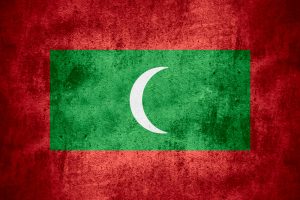Maldives is expected to go to polls in September 2023. The vote will elect the parliament and the president, the head of government. In Maldives’ 2019 parliamentary election, the Maldivian Democratic Party (MDP) won 65 seats in the 87-seat parliament. Led by Ibrahim Mohamed Solih, this was the first time a single party was able to get such a high number of seats in the parliament in Maldivian history. Following the MDP, the Jumhooree Party has five seats; the Progressive Party of Maldives (PPM) has five seats; the People’s National Congress (PNC) has three seats; the Maldives Development Alliance has two seats; and the remaining seven seats are held by independents.
Domestic issues for the country that feature in electoral campaigning primarily revolve around development, corruption, the environment, and violent extremism. Nevertheless, despite these domestic concerns, the focus of the electoral campaigns appears to be on external factors such as India and China. In this regard, anti-India and anti-China campaigns have been dominating the polarized political discourse.
A rift in the ruling MDP appears to be widening between the party’s main leaders, former President Mohamed Nasheed and incumbent President Solih. Nasheed announced he would contest in the MDP’s presidential primary and officially launched his campaign in early December 2022. Solih had earlier confirmed at a press conference in June 2022 that he would seek re-election.
The rift began to grow in the party when Nasheed, after being elected as the parliament’s speaker, expressed interest in changing the Maldives’ political system from a presidential system to a parliamentary system of government. During the primary, Nasheed stated the poll was a choice between autocracy and democracy, and accused Solih of rigging votes and bribery.
The MDP held its presidential primary in late January 2023, with Solih being the party’s first sitting president to compete in a presidential primary. Solih won the primary and announced to his supporters that the “rivalry is now over.” Further infighting may lead to the splitting of votes within the MDP ahead of the elections. Nasheed has not announced whether he would back Solih after losing the presidential primary.
Separately, although the opposition coalition (PPM/PNC) had handed its presidential ticket to former President Abdulla Yameen Abdul Qayyoom, he was sentenced in December to 11 years in prison on charges of money laundering and bribery. This bars him from running for president. He has until August 2023 to overturn his conviction to be able to file his nomination and contest the election.
Simmering behind domestic politics in Maldives, India and China’s activities in the country have added to political divisions and polarization. The country’s political opposition under Yameen has urged Solih to reconsider the closeness of the relationship with India to protect Maldives’ sovereignty. While the current government has actively sought to strengthen such ties with India, Yameen and the main opposition forces have pressed the government to weaken such ties or even end India’s presence altogether, embodied by the “India Out” slogan. While speaking at an “India Out” event, Yameen said his administration would terminate all agreements with India if elected.
Subsequently, on China, Nasheed of the ruling MDP said that Beijing “intentionally inflated” the price of developmental projects it funded in the developing world. He added that “it was a mistake that we took part in the Belt and Road Initiative” under Yameen’s rule. With records and details not transparently laid out concerning China’s economic and development engagement with Malé, the Maldivian finance minister has previously stated that he used his first week in office “trying to reconcile loans that the previous government took for these projects and the sovereign guarantees that it gave for them,” as the government had no idea how much was owed to China.
As the elections draw closer, it is possible that the India and China “factors” relating to the political campaigns could increase, given how they cut cleanly across party lines. It would be in New Delhi’s interest if infighting within the MDP is resolved, as the opposition has made it clear they would pivot their foreign policy swiftly away from the current orientation toward India. On the other hand, for China, infighting and a greater focus on the “India Out” campaign could bring out an opposition that is willing to further facilitate Beijing’s engagement in the archipelagic nation.
Regardless, the government formed in the second half of 2023 will have numerous challenges in maneuvering and balancing Indian and Chinese interests in the region. At the same time, domestic politics will have clear implications for Maldives’ foreign policy as the outcome will determine whether India or China has a strategic advantage in the region. In the meantime, New Delhi and Beijing can only watch from the sides and strategize on how to further their interests regardless of the political outcome in September 2023.













